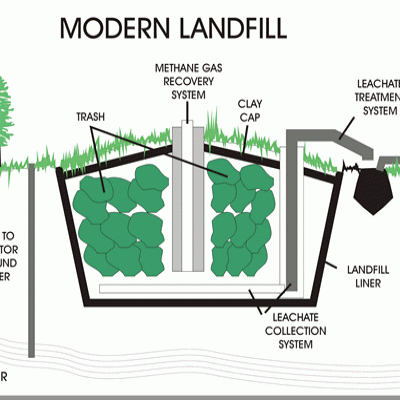Ghana Landfill Gas Capture & Utilisation Project
The Government of Ghana has requested financing from NDF grants for the proposed “Landfill Gas Capture & Utilization Project”, which has been developed under the World Bank led Ghana Second Urban Environmental Sanitation Project (UESP II).
The objective is to reduce the emissions of greenhouse gases (methane) from the solid waste landfills and increase the use of renewable energy. The project will also strengthen the financial situation and improve the solid waste management services in the project cities that will contribute to enhanced environmental health and living conditions of the concerned populations, mostly urban poor living close to the landfill sites.
The NDF grant will be used to prepare a CDM project on Landfill Gas (LFG) capture in three large landfills in the cities of Kumasi, Tamale and Tema in Ghana. The estimates of LFG emission reduction potential are based on detailed modelling. The total baseline emissions from the three landfills accumulated over a 10 years period are estimated at about 2.8 million tons CO2 equivalents, while the accumulated net emissions reduction volume is 1.2 million CO2 equivalents. The emission reduction volume is equivalent to the number of Certified Emission Reduction (CER), which will be generated through the CDM project. Based on actual verified data the CERs will be issued by the UN Clean Development Mechanism Executive Board.
The NDF grant of EUR 2.0 million will cover international consulting services that will carry out a study to analyse the current situation at three landfills: Kumasi, Tamale and Tema. The assignment will also develop the CDM project design, prepare the bidding documents for the LFG systems and facilitate investment agreements and the procedures to secure carbon credits. The study is expected to take 18 months. LFG systems could then be operational from 2013 onwards.


